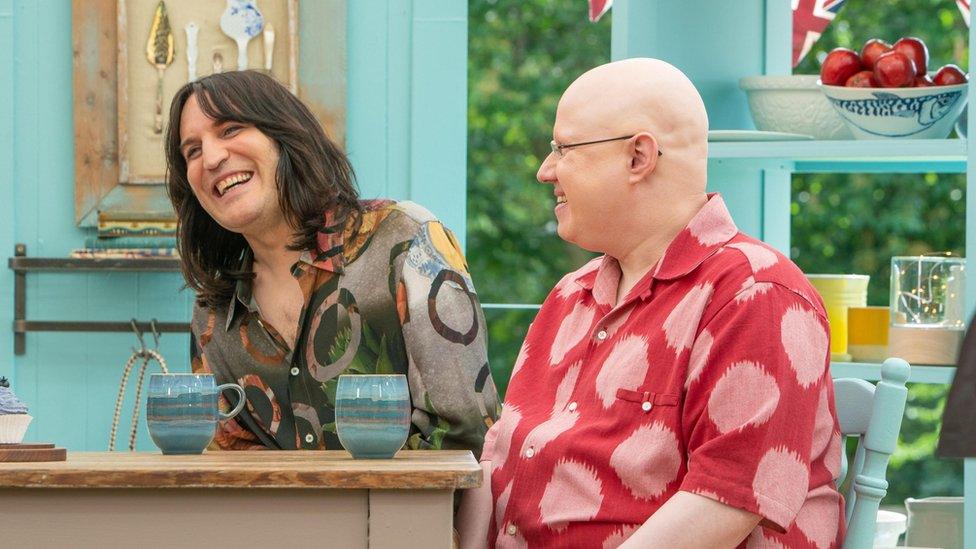The Great British Bake Off: How has the show changed since series one?
- Published
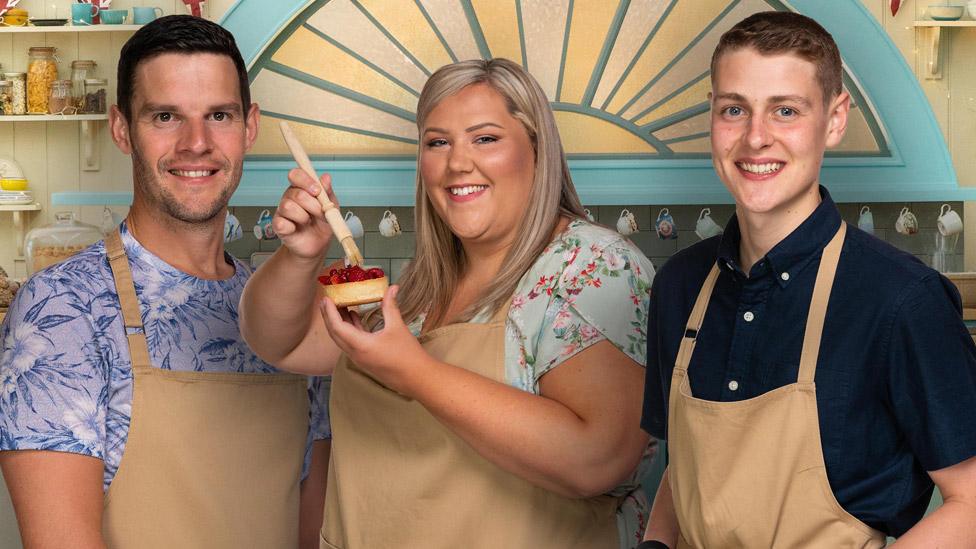
Dave, Laura and Peter will compete in this year's final on Channel 4 later
It's 10 years since The Great British Bake Off first appeared on our screens - so how does the show compare with the very first series, and what is its recipe for success?
This year's Bake Off contestants have had their culinary skills tested to the limit by tarts in cages, jelly art, Danish horns, Japanese crepe cakes and Jewish babkas - not to mention edible busts of Freddie Mercury and David Bowie.
Over the past decade the fiendishness of the challenges, and the contestants' baking standards, have risen like a well-proved Paul Hollywood loaf.
Back when the show started with little fanfare on BBC Two in 2010, things were simpler.
The first signature challenge in the first episode was to bake a cake. Just a cake. Any cake.
The signature challenge was so called because it should say something about the baker - be that a family recipe or a connection with their past or personality.
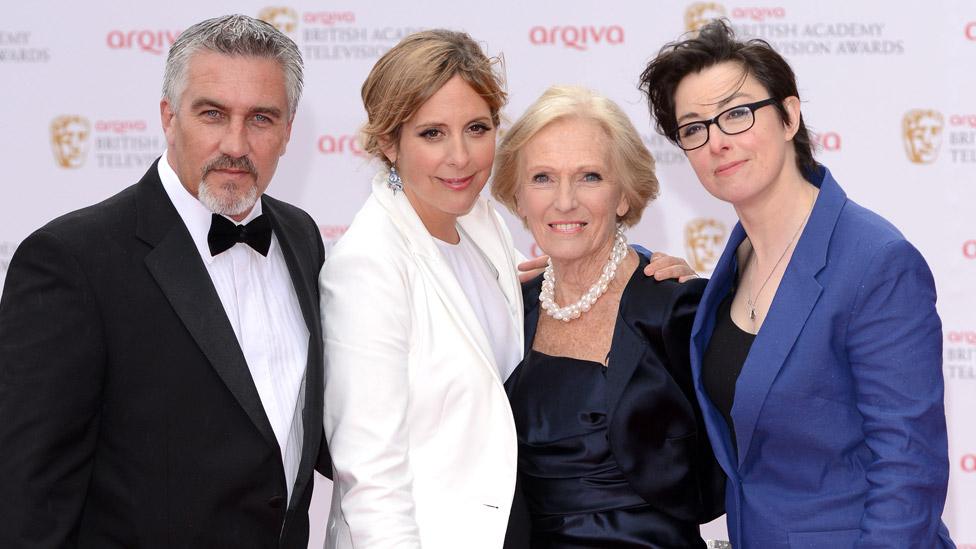
Paul Hollywood, Mel Giedroyc, Mary Berry and Sue Perkins at the 2013 Bafta TV Awards
For Annetha from Essex, it was a Light Jamaican Black Cake that a friend asked her to bake for an engagement party. For Mark, a bus driver from south Wales, it was his sticky marmalade tea loaf, which was the talk of the depot.
The opening task may have seemed simple and at that early stage Mark hadn't had the chance to learn that contestants shouldn't tempt fate by saying things like: "There's not a huge amount that can go wrong."
So when disaster struck and his loaf sunk in the middle, he became the first person to be reduced to tears in the Bake Off pressure cooker.
Heart and soul
"You've put your heart and soul into this," consoled co-host Sue Perkins as the burly bus driver fought back a blubbering fit.
"You've got the whole weekend," she encouraged him. "You've got a perfect tie. Stand up straight. You've got it all to play for."
By the end of her pep talk, Mark was fit to take on the tent again, like a boxer back on his feet. "I'm ready for the next challenge," he told her.
Sadly for Mark, he still got evicted that week. By the end of the episode, he had come to the realisation that the contest was perhaps always going to be a bit of an uphill struggle. "Cakes aren't my strong suit," he admitted.
Allow YouTube content?
This article contains content provided by Google YouTube. We ask for your permission before anything is loaded, as they may be using cookies and other technologies. You may want to read Google’s cookie policy, external and privacy policy, external before accepting. To view this content choose ‘accept and continue’.

In series one, the technical challenges didn't leave the bakers scratching their heads over recipes they had never heard of, let alone attempted. The first technical was a Victoria sponge; in episode three it was a cob - in other words, a loaf of bread.
Some tasks were more intricate, and the more ambitious bakers soon realised they could excel by adding their own twists. And while the standard has risen over the years, let's not forget this year's crop of bakers could barely rustle up a decent chocolate brownie between them.
After the signature and technical comes the showstopper - except no-one had thought of the "showstopper" name in series one. It was just... the last challenge.
The showstopper name arrived in series two, along with star baker, the words "ready, steady, bake" and the hosts doing the narration, replacing the dry voiceover man who had been used the previous year.
Allow YouTube content?
This article contains content provided by Google YouTube. We ask for your permission before anything is loaded, as they may be using cookies and other technologies. You may want to read Google’s cookie policy, external and privacy policy, external before accepting. To view this content choose ‘accept and continue’.

The famous soggy bottom made its first appearance in series one, when Paul warned how long a contestant's minced beef pie would take to cook. "I think we could be looking at a soggy bottom," he intoned gravely. "I think we could be looking at a slightly raw bottom."
"Ooh!" Sue gleefully exclaimed. "A raw bottom!"
For the first five series, Sue and co-host Mel Giedroyc occasionally left the tent to present short segments about the history of baking - Sue sitting in the middle of a stone circle to educate and inform us about Stone Age cake, and Mel entertaining us with her reaction to a sheep's gut that was used to boil 15th Century puddings (which smelt like "my brother's sleeping bag circa 1976").
But producers eventually realised those films broke the tension of the tent. Revisiting the original series, it also becomes clear why the bakers were in a tent in the first place - rather than, say, a kitchen.
Sweet dreams - but Bake Off artist doesn't even like cake
In series one, the show went on tour, with the tent pitched in a new location for every episode - bread week in Sandwich, pasties in Cornwall, scones at Scone Palace.
By series two, producers had either run out of locations with links to baked goods, or realised that the tent looked the same wherever it was pitched - so it stayed parked in one place.
The tent, benches, union flag bunting, titles and illustrations have all survived since series one. The other constant has been Paul - the only difference being that the silver fox was then more of a flecked badger.
There's now a different judge by his side, with Prue Leith replacing Mary Berry when the show moved to Channel 4 in 2017.
The hosts changed, too. After Mel and Sue came Noel Fielding and Sandi Toksvig, and it's now Noel and Matt Lucas. The latest pairing has divided opinion.
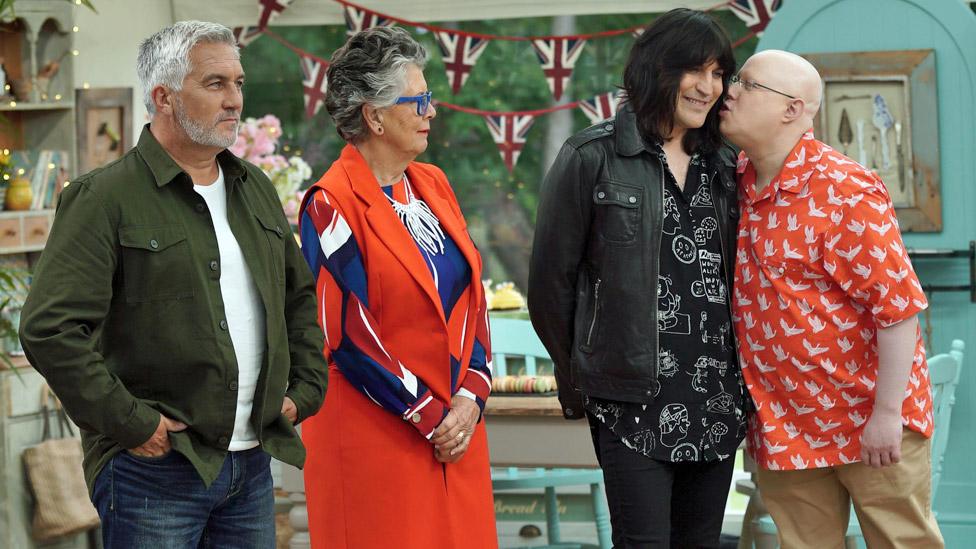
Matt Lucas (right) joined the show as a co-host this year
They're both funny, likeable, and able to chivvy and console with empathy. But while Noel and Sandi complemented each other, Noel and Matt are at times too similar in their silliness, egging each other on like a pair of playground show-offs.
But the show's ingredients for success have changed remarkably little over the years. Sue nailed it in the very first episode, while ruminating on Mark's marmalade-flavoured meltdown.
"The structure of it is a competition, and there will be a winner," she said.
"But along the way it's important to remember that making something for somebody is an act of love, and it's an act of committing their time and their energy and their passion, and it's incredibly painful when someone rejects that."
Baking, the show has taught us, is a very personal activity. As another contestant, Miranda, put it after handing over her lemon cupcakes in the very first final: "You do feel like you're sending little members of your family out there to be judged."
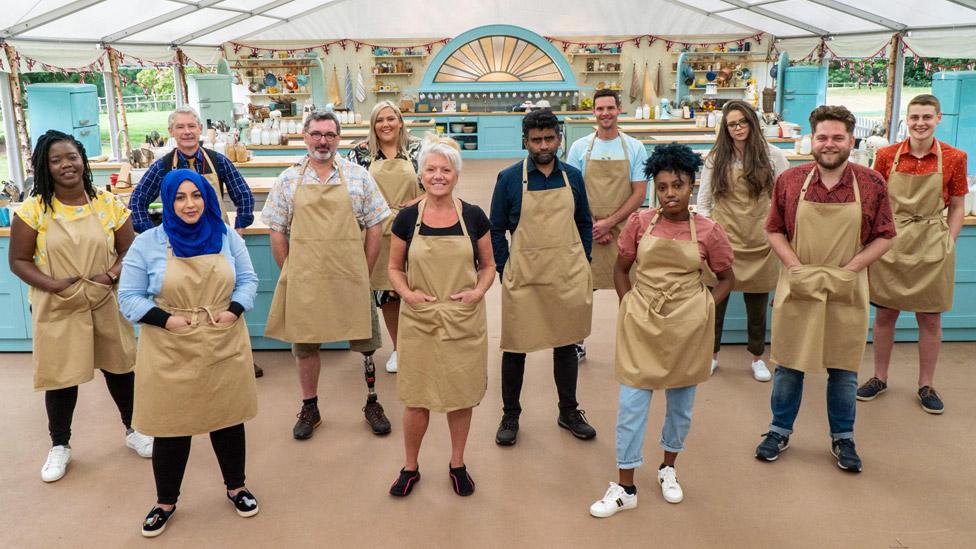
The Great British Bake Off class of 2020
The 2010 final's second task was more a test of stamina than ingenuity, with the last two bakers each tasked with rustling up 24 mini tarts, 24 scones, 24 choux buns and 24 finger sandwiches (made with freshly baked bread) for a tea party. Edd Kimber emerged as the victor.
But, as the cliché says, it's not all about the winning.
Runner-up Ruth told us how being on the programme had helped her overcome a sense of inferiority she'd felt ever since she had missed out on going to university like her friends.
"I feel almost like that 18-year-old again that was full of confidence before the world knocked it out of her," she said after impressing the judges one week.
She wasn't downhearted to lose out to Edd. "I think I've changed an awful lot," she reflected at the end of the series. "I'm a lot more confident and proud of myself than I have been for years."
And perhaps that's the key ingredient - the egg that binds the others together - how the contestants grow in confidence as well as competence as they overcome the challenges that are put in their way.
The final episode of series one closed with Mel and Sue larking about on the lawn - and a TV hit was born.
The final of The Great British Bake Off 2020 is on Channel 4 at 20:00 GMT on Tuesday, 24 November, and then on All 4 in the UK, external.

Follow us on Facebook, external, or on Twitter @BBCNewsEnts, external. If you have a story suggestion email entertainment.news@bbc.co.uk, external.
- Published19 November 2020
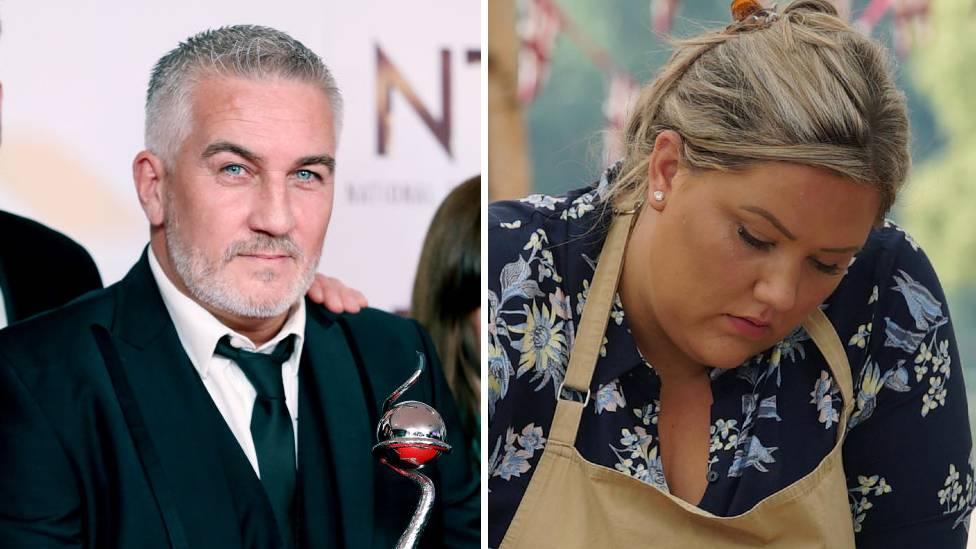
- Published7 November 2020
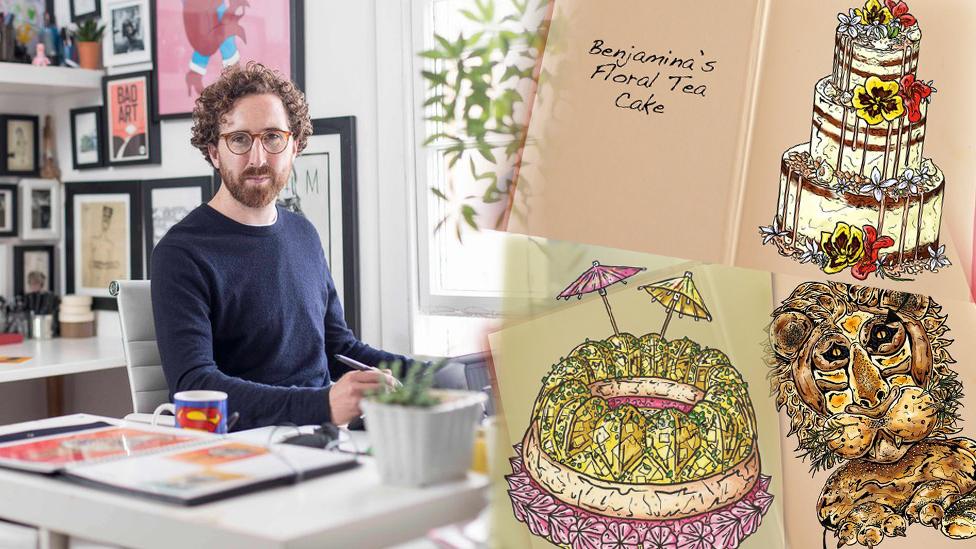
- Published23 September 2020
